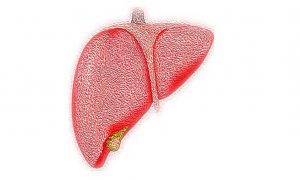Hypertension or high blood pressure tends to fluctuate in winter season. Here are few ways how it can be reduced naturally at home.
Managing hypertension, or high blood pressure, is important regardless of the season. However, certain factors during winters, such as cold weather and decreased physical activity, may require additional attention. Here are six natural ways to help reduce hypertension during winters:
Also Read– How Tomatoes May Help To Lower High Blood Pressure Naturally? 5 Things To Know
6 TIPS TO LOWER HIGH BLOOD PRESSURE NATURALLY AT HOME
- Stay Active: Engage in regular physical activity indoors to maintain an active lifestyle. Exercise helps lower blood pressure by improving cardiovascular health, enhancing blood circulation, and reducing stress. Consider activities like brisk walking, yoga, swimming, or indoor workouts. Consult with your healthcare provider before starting or modifying an exercise routine.
- Maintain a Healthy Diet: Follow a balanced, heart-healthy diet to manage hypertension. Include plenty of fruits, vegetables, whole grains, lean proteins, and low-fat dairy products. Limit sodium intake by avoiding processed foods, canned soups, and salty snacks. Opt for warm, nutritious meals like soups, stews, and roasted vegetables, and incorporate foods rich in potassium, such as bananas, oranges, and spinach.
- Limit Alcohol and Caffeine: Excessive alcohol and caffeine consumption can contribute to elevated blood pressure levels. During winters, it’s common to indulge in hot alcoholic beverages and caffeinated drinks. However, moderation is key. Limit alcohol to moderate levels (up to one drink per day for women and up to two drinks per day for men) and monitor caffeine intake from sources like coffee, tea, and energy drinks.
- Manage Stress: Winter can sometimes bring added stress due to holiday pressures and seasonal changes. Chronic stress can contribute to hypertension. Practice stress management techniques like deep breathing exercises, meditation, yoga, or engaging in hobbies and activities that help you relax. Adequate sleep is also crucial for stress reduction and overall well-being.
- Stay Warm: Exposure to cold temperatures can cause blood vessels to constrict, leading to a temporary spike in blood pressure. Dress warmly in layers, especially when going outdoors. Use heating devices to keep your living space comfortably warm. Avoid sudden temperature changes and take precautions to protect yourself from cold-related health issues.
- Monitor Blood Pressure: Regularly check your blood pressure at home and keep track of the readings. This allows you to monitor your progress and make necessary adjustments to your lifestyle or treatment plan. Share the readings with your healthcare provider for better management and guidance.
It’s important to note that these natural approaches may support blood pressure management, but they may not replace medical treatment. If you have hypertension, consult with your healthcare provider for personalized advice and to discuss any necessary medication adjustments.
Remember, maintaining a healthy lifestyle year-round is key to managing hypertension effectively. Adopting these practices during winters can help you stay on track and promote overall cardiovascular health.



































